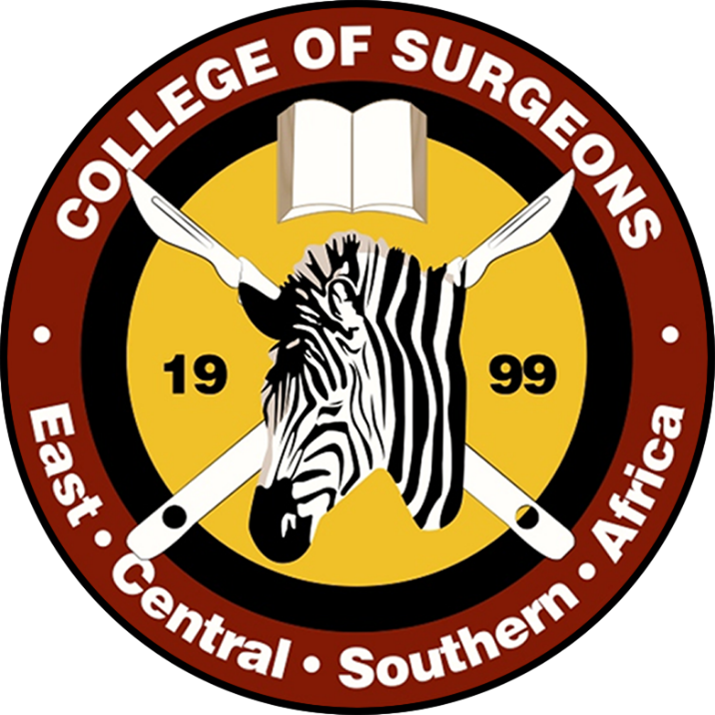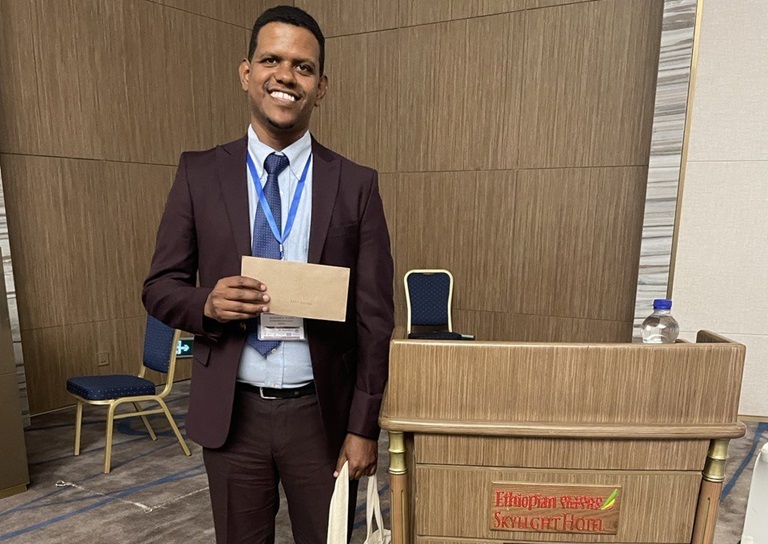On the 8th of December, 2023, during the COSECSA Scientific Conference, COSECSA Vice President, Professor Laston Chikoya announced and awarded Dr. Yoseph Solomon Bezabih with the first COSECSA-BJS Award.
This was to recognize his research work on Perioperative outcomes after open biliary bypass for malignant biliary obstruction (MBO) in resource-limited settings, which is now published in the European Journal of Surgical Oncology 50, no. 4 (April 1, 2024): 108254. https://doi.org/10.1016/j.ejso.2024.108254.
We recently had a chat with Dr. Yoseph and we are happy to share his experience and comments in development of research at COSECSA region as well as its impact.
Interview with Dr. Yoseph Solomon Bezabih
1: What made you think about that study?
As a surgeon practicing in a resource-limited environment, I encounter the challenge of adapting to technology. Our surgical caseload often includes procedures less commonly performed in developed countries, which would typically be managed with Minimally Invasive Interventions. Notably, for patients with unresectable malignant biliary obstructions, our routine approach involves open biliary bypass due to limited endoscopic and radiologic alternatives. The prevalence of this procedure among our patient and lack comprehensive data on outcomes beyond hospital discharge in our population serves as a compelling motivation for further investigation into its long-term results.
2: What are the key findings of your study that are of benefit to our region?
After undergoing open biliary bypass surgery for malignant biliary obstruction, patients with longer operation time, preoperative cholangitis, and elevated total bilirubin levels face a higher risk of unfavourable perioperative outcomes. Clinicians can utilize these findings to optimize patient management and reduce the elevated risk of severe morbidity and mortality.
3: Did the BJS award somehow help you in this work?
The BJS award was pivotal in enhancing my work, especially during the final stages of manuscript preparation. Given its competitive nature, I tried to align the manuscript with the rigorous standards set by the BJS. The journal’s prestige further motivated me to produce a high-quality paper.
4: What is your call to other COSECSA fellows and surgeons in the region regarding producing high-impact papers like yours?
As a fellow COSECSA member, I emphasize the importance of collaborative efforts to conduct multicentre studies. By doing so, we can generate evidence specific to our context. While existing information is often derived from different settings, we must design and implement studies directly impacting our surgical practice.
5: How can COSECSA and other surgeons benefit from your expertise?
As an early-career surgeon and investigator interested in postoperative outcome studies, I am always seeking collaboration with fellow COSECSA and other surgeons who share similar interests. By engaging in knowledge exchange and experience-sharing, I believe such partnerships will significantly enhance our professional growth and contribute to our collective understanding.
6: What can COSECSA do to nurture key researchers like yourself in the region?
COSECSA has a pivotal role in fostering research capacity within the region. To achieve this, it is essential for COSECSA to integrate research methodology training. By doing so, COSECSA can empower surgeons and trainees to engage in evidence-based practice. Additionally, establishing collaborations with high-volume centres to create surgical registries will facilitate efficient data utilization.
Conclusion
As we celebrate COSECSA’s 25th Anniversary, we commend all the fellows who are doing a great work in producing evidence in the region and call upon our partners and friends to continue their support to these key efforts. “When you drop any new idea in the pond of the world, you get a ripple effect. You have to be aware that you will be creating a cascade of change.” Joel A. Barker

